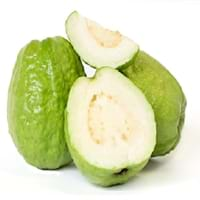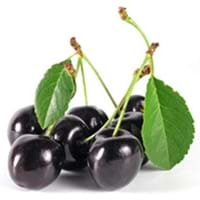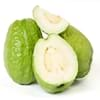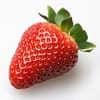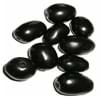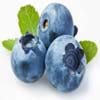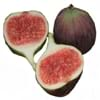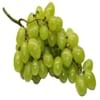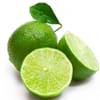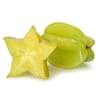Health Benefits
Cancer prevention, Diarrhea treatment, Prevents constipation, Scurvy treatment, Treatment of dysentary
Anti-aging benefits, Anti-inflammatory properties, Arthritis treatment, Cancer prevention, Helps body to rest and sleep, Lower blood pressure, Prevents diabetes, Prevents strokes, Reduces risk of heart disease
General Benefits
Controls blood pressure, Cures cough, Improves eye vision, Maintains healthy cholesterol level, Treatment of common cold
Fights against infections, Fights Tooth Decay, Helps in weight loss, Relieves pain, Treatment of migraine
Skin Benefits
Anti-aging benefits, Brightens and lightens complexion, Hydrates skin, Treatment of skin diseases
Anti-aging benefits, Fairness, Hydrates skin, Prevents skin cancer, Skin repair, Treatment of acne
Hair Benefits
Prevents hair loss
Cure for hair loss, Increasing hair volume, Prevents hair loss, Strengthening of hair
Allergy Symptoms
Breathing difficulty, Coughing, Runny nose, Sneezing, Swelling of mouth, tongue or lips, Wheezing
Abdominal cramps, Anaphylaxis, Diarrhea, Hoarseness, Itchy eyes, Nausea, Pollen allergies, Sore eyes, Vomiting, Watery eyes, Wheezing
Side Effects
Hair thinning, Nail thinning, Skin problems, Tooth decay, Weakness, Possibly unsafe during pregnancy
High doses of black cherry bark can be poisonous and even fatal.
Best Time to Eat
As a snack in the late afternoon, Don't consume at night and before bed, Eat the fresh ones, avoid mixing with any other foods, don't eat after meal., Morning time (before lunch)
Best if taken as a breakfast (or empty stomach), Don't eat after meal, Morning time (before lunch)
Vitamin B5 (Pantothenic Acid)
Vitamin B9 (Folic acid)
-
Vitamin C (Ascorbic Acid)
-
Vitamin E (Tocopherole)
-
Vitamin K (Phyllochinone)
-
Calories in Fresh Fruit with Peel
Calories in Fresh Fruit without Peel
-
-
Calories in Frozen Form
-
-
Calories in Canned Form
-
Type
Tree fruit, Tropical
Berry
Season
All seasons
Summer
Varieties
Lucknow 49, Allahabad Safeda, Chittidar, Harijha, Apple guava, Hafshi, Arka Mridula and Allahabad Surkha
alabamensis, capuli , eximia and hirsuta
Color
Green, Pink, Yellow
Black
Inside Color
White
Maroon
Taste
Sweet-Sour
Sweet-Sour
Origin
Central America, Mexico, South America
North America
Soil Type
Loam, Rocky, Sandy
-
Climatic Conditions
Sunny
Cold
Facts about
- The black pigment in Guava leaves is used for textile applications.
- Guava leaves are used to make tea.
- Oils extracted from guava seeds are used in various cosmetics.
- Guava wood is used for decorative purposes.
- Black cherry is deciduous tree that belongs to the family of roses.
- Some foods made from Black Cherry fruit include jelly and wine.
- Inner bark of black cherry is used in the manufacture of cough syrup.
Top Producer
India
Turkey
Other Countries
China, Indonesia, Mexico, Nigeria, Pakistan, Philippines, Thailand
Austria, Bulgaria, Chile, China, France, Greece, Iran, Italy, Macedonia, Poland, Romania, Russia, Serbia, Spain, Syria, Ukraine, United States of America, Uzbekistan
Top Importer
Canada
France
Top Exporter
India
Turkey
Botanical Name
Psidium guajava
Prunus Serotina
Synonym
-
wild black cherry, rum cherry and mountain black cherry
Subkingdom
Tracheobionta
Tracheobionta
Division
Magnoliophyta
Magnoliophyta
Class
Magnoliopsida
Magnoliopsida
Family
Myrtaceae
Rosaceae
Species
Psidium guajava
P. serotina
Generic Group
Myrtle
Cherry
Difference Between Guava and Black cherry
We might think that Guava and Black cherry are similar with respect to nutritional value and health benefits. But the nutrient content of both fruits is different. Guava and Black cherry Facts such as their taste, shape, color, and size are also distinct. The difference between Guava and Black cherry is explained here.
The amount of calories in 100 gm of fresh Guava and Black cherry with peel is 68.00 kcal and 63.00 kcal and the amount of calories without peel is - and - respectively. Thus, Guava and Black cherry belong to Low Calorie Fruits and Low Calorie Fruits category.These fruits might or might not differ with respect to their scientific classification. The order of Guava and Black cherry is Myrtales and Rosales respectively. Guava belongs to Myrtaceae family and Black cherry belongs to Rosaceae family. Guava belongs to Psidium genus of Psidium guajava species and Black cherry belongs to Prunus genus of P. serotina species. Beings plants, both fruits belong to Plantae Kingdom.
